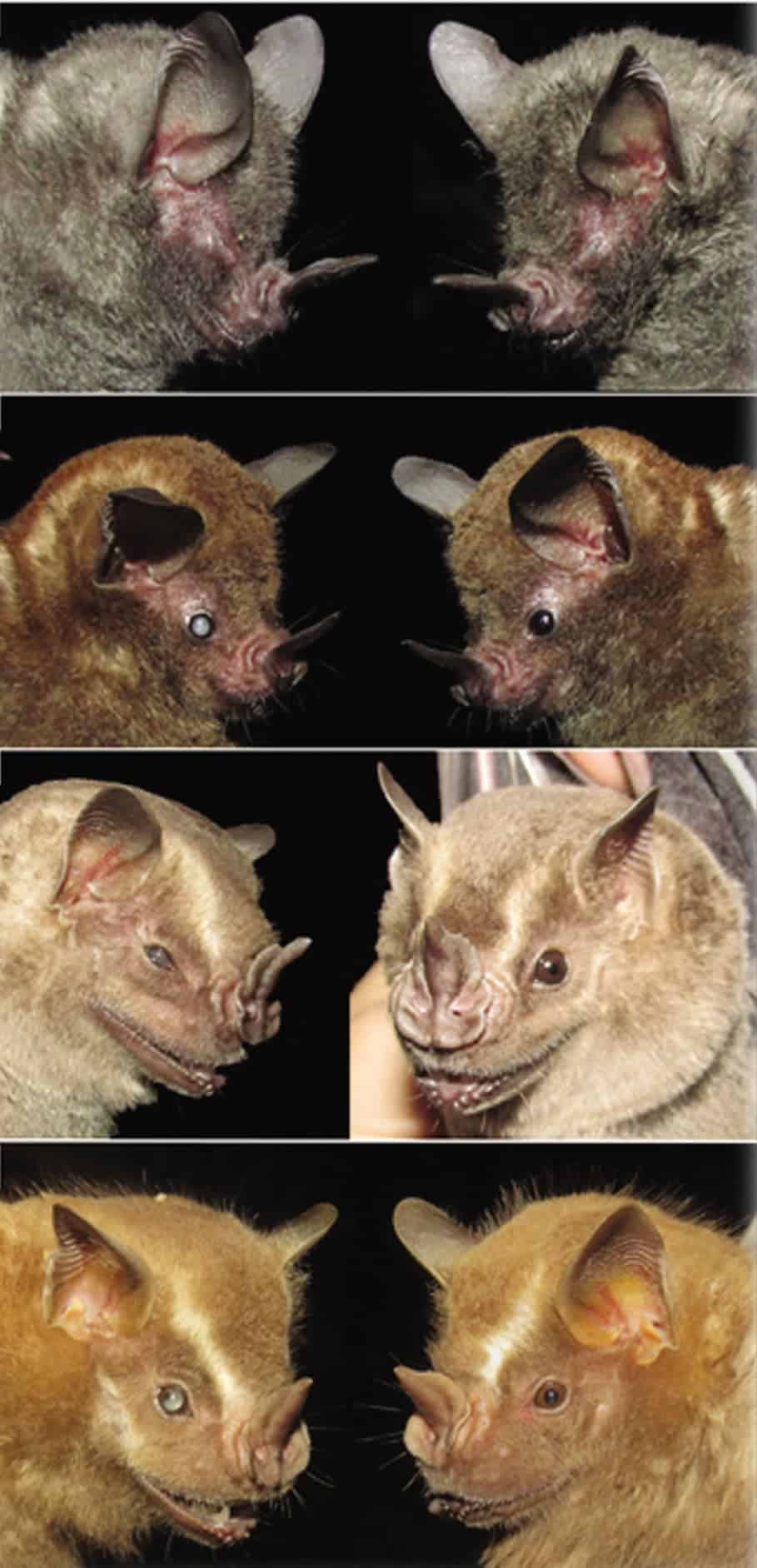When a myth came true: Blindness in bats
Despite popular belief, bats are not blind. Their vision plays an important role in environmental recognition, and as a result ocular disabilities are expected to play a role in premature death. Contrary to this, Brazilian scientists reported the first case of blindness in healthy adult bats, revealing a powerful integration of multi-sensory systems in echolocating animals.
By Anderson Feijó
Bats are surrounded by numerous myths that permeate popular thought, often associated with fictitious stories of vampires such as Bram Stoker’s Dracula. Blindness is one of the largest misconception about bats. In fact, the vision in these flying mammals plays an important role in light detection, long-range orientation, and environmental recognition.
In some bats, functional vision works complementary to their sonar system based on echolocation pulses. Many of these echolocating bats exhibit odd facial structures such as long nasal appendices and highly developed ears that improve their echolocation system.

Disabilities in major sensory systems in wild animals are expected to be fatal and are rarely documented. As a result, previous studies have speculated that adult bats with eye deformities would likely succumb in nature. Eschewing this prediction, a Brazilian team of scientists are the first to report on blindness and ocular anomalies in healthy wild adult bats.
One totally blind bat and three with partial loss of vision were captured in highly human-modified (urban and agricultural) areas in northeastern Brazil. The visual acuity of the anomalous bats was evaluated using the same protocol applied by ophthalmologists, testing pupil reaction to light exposure and placing objects near their eyes.
Surprisingly, the health condition of all visually impaired animals was relative to other bats, considering that blindness can severely compromise the perception of the environment, spatial orientation, and make blind specimens easier targets for predators. These findings suggest that a complex integration of different sensory systems still allow bats to successfully explore the environment.

The research article published in the journal Mammalia brings new insights about the habitat perception in mammals and suggests an unreported ecological compensation of the sensory system in bats, driving future physiologic and neurologic studies of orientation behavior in echolocating animals.
“Echolocating animals have a complex multi-scale perception of the world and our findings of blind bats in nature suggests an unreported ecological compensation of the sensory system,” says Anderson Feijó, corresponding author of the article.
Read the original article here: